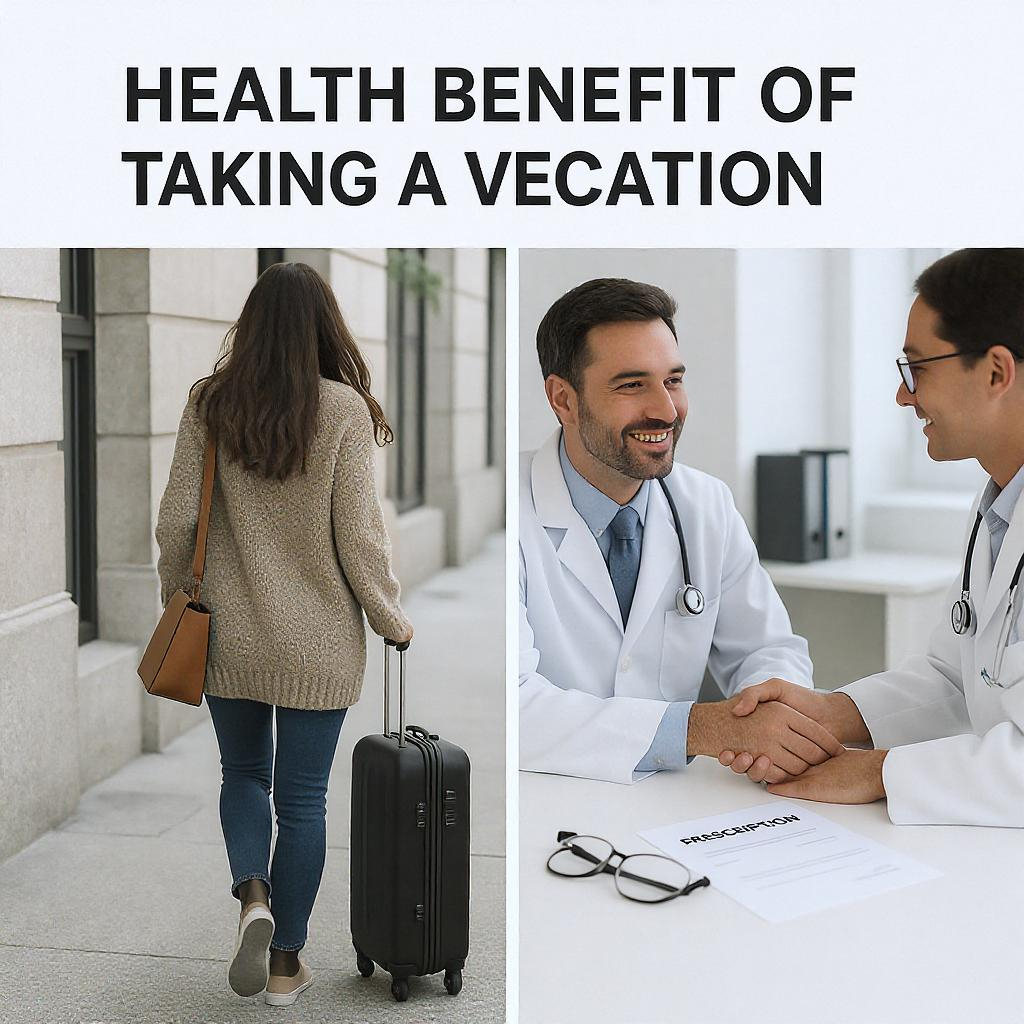
Key Takeaways
- Vacations significantly lower stress levels and boost mental clarity
- Time off improves heart health and reduces risk of burnout
- Regular breaks increase productivity and creativity
- Family vacations strengthen emotional bonds
- Vacations improve sleep quality and mood regulation
1. Reduce Chronic Stress and Cortisol Levels
Taking a vacation is one of the most effective ways to reduce chronic stress, which is directly linked to high cortisol levels in the body. Elevated cortisol contributes to a weakened immune system, increased blood pressure, poor sleep, and even weight gain. When we remove ourselves from demanding environments and allow space to rest, the body’s stress response system can reset. This helps regulate hormonal levels, balance the nervous system, and reduce inflammatory responses.
2. Improve Heart Health and Cardiovascular Function
Several studies, including those published by the American Heart Association, confirm that vacations reduce the risk of heart disease. Men who take frequent vacations are 32% less likely to die of a heart attack. Women who take regular time off are 50% less likely to suffer from coronary heart issues. When we disengage from the pressures of work and restore our inner calm, our heart rhythm improves, blood pressure stabilizes, and our circulation benefits.
3. Boost Mental Health and Emotional Wellbeing
Is vacation good for mental health? The answer is a resounding yes. Mental health professionals consistently recommend vacations to counteract the symptoms of anxiety, depression, and emotional fatigue. When we break from repetitive, stressful routines, the brain has the opportunity to engage in positive neuroplasticity, rewiring itself through new experiences, laughter, nature exposure, and rest. This fosters resilience and uplifts mood.
4. Strengthen Immune System Function
One of the lesser-known health benefits of taking a vacation is its impact on the immune system. Chronic stress suppresses immune function, making the body more vulnerable to illness and infection. Time away—especially in nature or new environments—allows white blood cell production to regulate, reduces inflammation, and enhances natural killer cell activity. These responses collectively boost our disease resistance.
5. Increase Productivity and Creativity
Time off doesn’t just help us feel better—it actually makes us better at our jobs. Burnout, fatigue, and mental stagnation result in reduced performance and motivation. Studies from Harvard Business Review and the University of California confirm that employees who take regular vacations show increased problem-solving ability, focus, and innovation. Stepping away from routine creates space for the brain’s default mode network to engage, enhancing creativity.
6. Improve Sleep Quality and Restore Circadian Rhythms
Poor sleep is a major contributor to cognitive decline, weakened immunity, and mood disorders. Vacations help to reboot our circadian rhythm, the natural cycle that governs sleep-wake patterns. Without the pressure of alarms, meetings, and screens, melatonin levels balance naturally. Exposure to natural light during vacations—especially in nature—also supports this rhythm, resulting in deeper, more restorative sleep.
7. Enhance Relationships and Emotional Bonds
Shared travel experiences with family, partners, or friends foster emotional intimacy, laughter, and trust. A study by the U.S. Travel Association found that family vacations strengthen family bonds, reduce conflict, and help children develop stronger social and cognitive skills. When we disconnect from devices and reconnect with people, we deepen relationships and emotional support networks that are essential for mental health.
8. Gain Fresh Perspective and Mental Clarity
Routine narrows our focus. A break from the day-to-day offers the brain time to defragment, reflect, and refresh. Time away from habitual environments allows for a broader view of challenges and life priorities. We return with greater mental clarity, better emotional regulation, and a renewed sense of purpose. In essence, vacations reboot the mind’s executive functioning.
9. Lower Risk of Burnout and Emotional Exhaustion
Burnout is classified by the World Health Organization as an occupational phenomenon, defined by emotional exhaustion, cynicism, and reduced efficacy. Taking time off regularly prevents this cycle. In fields where performance and decision-making are critical—such as healthcare, tech, or education—regular vacations are a professional necessity. They preserve mental stamina, empathy, and prevent compassion fatigue.
10. Because You Deserve It
Why do I deserve a vacation? Because rest is not a reward—it’s a necessity. Just like nutrition or exercise, rest must be integrated into a healthy lifestyle. Taking a vacation isn’t indulgence; it’s a deliberate act of self-care, boundary-setting, and restoration. Every individual, regardless of profession or background, deserves periods of rest and renewal to function fully.
Frequently Asked Questions
Is vacation good for mental health?
Yes. Taking a vacation helps reduce anxiety, depression, and emotional burnout. It provides a mental reset, fosters new neural pathways, and enhances mood stability.
What are the health benefits of taking a vacation?
Vacations reduce stress, improve heart health, boost immunity, enhance sleep, and support emotional wellbeing. They also prevent burnout and increase productivity.
Why do I deserve a vacation?
Because rest is vital to your mental and physical health. Everyone deserves time to recharge, disconnect, and experience joy beyond the obligations of work and routine.
How often should I take a vacation?
Ideally, a short break every few months and a longer vacation at least once a year helps maintain optimal mental and physical health. Micro-vacations (3–4 days) also offer substantial benefits.
Can a staycation provide the same benefits?
Yes, if it’s truly restful and disconnects you from work and stressors. The key is engaging in restorative activities, breaking routine, and focusing on joy, nature, and presence.
Conclusion:
Taking a vacation is not a luxury—it’s a scientifically backed tool for maintaining total wellness. Whether you escape to a tropical island, a quiet cabin, or simply create space at home for rest, prioritizing time off is an investment in your health, happiness, and longevity. Let’s stop seeing vacations as optional and start embracing them as essential to a balanced, vibrant life.